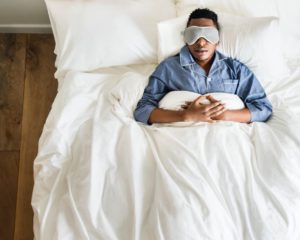
Do you suspect that you have obstructive sleep apnea (OSA)? If so, you need to receive an official diagnosis before you can receive a prescription for treatment. An at-home sleep test may be the most convenient way for you to find out for sure if you have OSA and how severe your condition is. What can you expect with at-home sleep testing? This blog post explains.
What Is an at-Home Sleep Test?
The concept of an at-home sleep test is pretty simple. First, you have to borrow a special device from a qualified provider. You will bring the device home and set it up according to the provided instructions. This part is usually pretty easy; all you have to do is strap some sensors onto yourself so they can monitor your breathing. If you have questions about the setup, simply get in touch with your care provider.
Once the device is connected, all you have to do is try to get some shuteye. When you return the device, a doctor will review your results and determine whether or not you have OSA.
The Pros and Cons of at-Home Sleep Testing
Many people opt for an at-home sleep test because it is more convenient and comfortable than the alternative diagnostic method, which requires you to spend a night in a laboratory hooked up to sophisticated machinery. It is also usually more affordable than lab-based testing. However, there are a few caveats to be aware of:
- At-home testing is usually reliable for diagnosing OSA. If your doctor suspects that you have another sleep disorder, you may need a lab-based sleep test.
- At-home testing does not provide detailed sleep information. The test might monitor your breathing, blood oxygen levels, snoring, and how much you move during sleep. However, it does not provide the depth of information that would be provided by a sleep test conducted in a laboratory.
Should You Request an at-Home Sleep Test?
Here are some signs that you might benefit from taking an at-home sleep test:
- You are frequently tired throughout the day despite spending 7 – 8 hours asleep.
- Your partner has observed that you sometimes stop breathing during the night.
- You snore loudly and frequently.
- You have risk factors for obstructive sleep apnea, such as obesity, the use of cigarettes, older age, or a large neck circumference.
- You have been undergoing OSA treatment for a while, and you want to know how well it is working.
At-home sleep testing is convenient and affordable! Your doctor can let you know whether it is right for you.
Meet the Practice
Dr. Angie Nauman is an experienced dentist who focuses primarily on helping patients find relief from disordered breathing during sleep. If you want to learn about your OSA treatment options, or you simply suspect that you have OSA, our team is ready to guide you on your next steps. Contact our Tulsa office at 918-300-4325.
